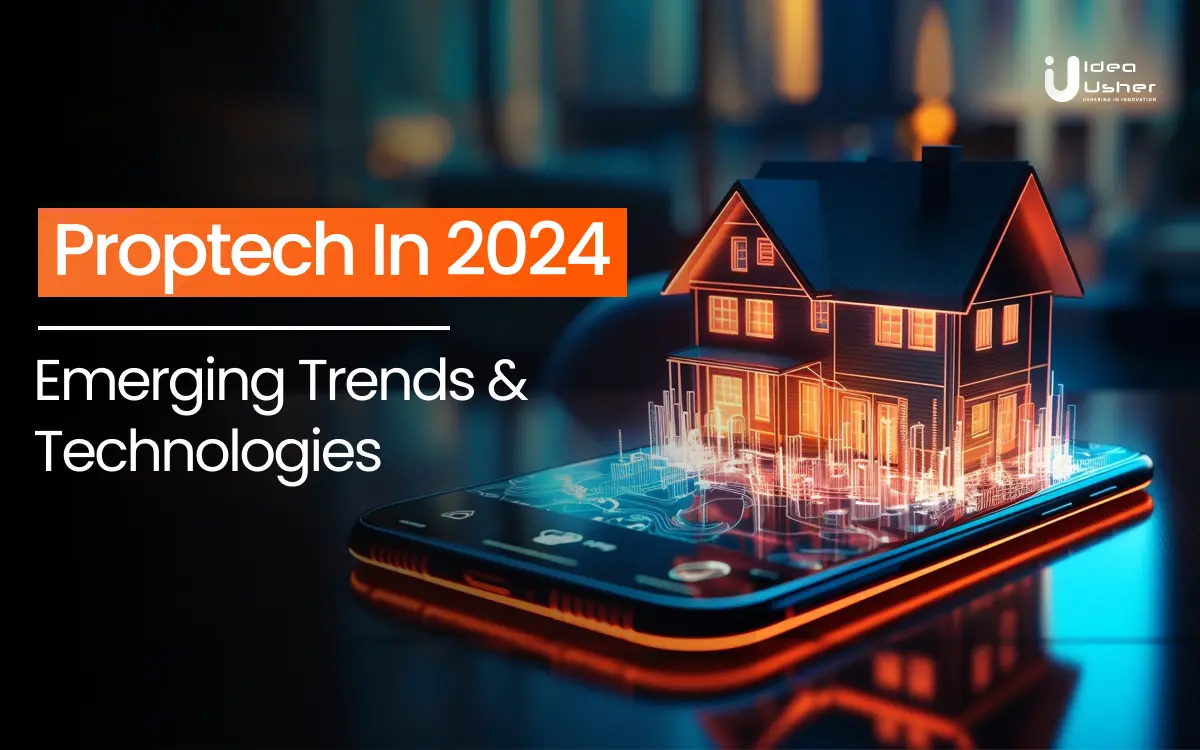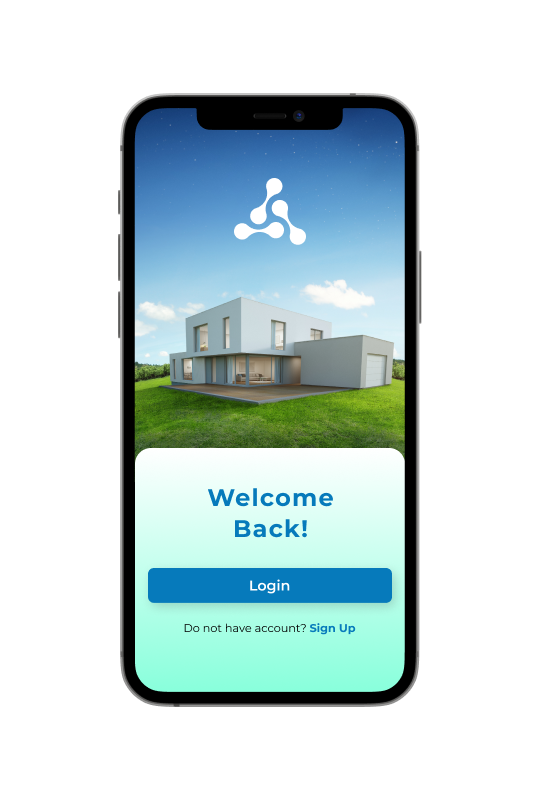It’s no secret that real estate, being the world’s largest asset class, presents abundant opportunities for both institutional investors and individuals. Despite emerging trends such as the shift to remote and hybrid working, real estate maintains its significance as a cornerstone of society.
Capital markets professionals universally depend on technology to expedite tasks with greater precision and efficiency. Although real estate, especially commercial real estate, has traditionally trailed behind adjacent markets in technological adoption, the rise of proptech has propelled the industry forward.
Continue reading to explore what is proptech and how technology in commercial real estate continues to reshape both the industry and the constructed environment.
What Is A Proptech?
Proptech, short for “property technology,” refers to the innovative use of technology within the real estate industry to streamline processes, enhance efficiency, and improve overall experiences for stakeholders.
This emerging sector encompasses a wide range of technologies, including but not limited to, artificial intelligence, virtual reality, blockchain, Internet of Things (IoT), and big data analytics. Proptech solutions aim to revolutionize various aspects of real estate, such as property management, construction, leasing, sales, and even urban planning.
Proptech platforms are reshaping the way properties are bought, sold, and leased. Online marketplaces and listing platforms provide users with easy access to property information, virtual tours, and data analytics, facilitating faster and more informed decision-making.
Urban planning and development are also benefiting from proptech innovations. Data analytics tools allow city planners to gather and analyze vast amounts of data related to demographics, traffic patterns, environmental factors, and more, enabling them to make data-driven decisions for sustainable urban development.
Proptech Market Stats
The following market statistics present an encouraging outlook, signaling substantial growth prospects and emphasizing pivotal factors propelling this expansion.
- According to Future Market Insights, the U.S. proptech market was valued at $18.2B in 2022, and is projected to reach $86.5B by 2032.
- Based on industry, retail is a leading segment in the PropTech market, with an expected CAGR of 19.4% by 2033. Technology is present at every step in the retail process, from creating a greater customer experience.
- PropTech services that enable the use of cutting-edge technologies like machine learning. PropTech platforms are growing at a faster rate, with an expected CAGR of 15.1% during the forecast period.
- North America holds 27.6% share of the global market.
Top Proptech Trends In 2024
In 2024, proptech trends are reshaping real estate, from neighborhood social networking to fractional investment platforms. GreenTech, IoT, and eSigning solutions drive innovation in community living and investment landscapes. Here are trends worth to notice
1. Neighborhood Social Networking Apps
In 2024, neighborhood social networking apps are set to revolutionize community living, particularly in co-renting and co-living spaces. These apps, akin to a “real estate TikTok” platform like Playhouse, facilitate connections between potential tenants based on interests and location while offering features to compare property ratings and reviews.
2. Co-Renting & Co-Living Marketplaces
The trend of co-living and co-renting, often referred to as “adult dorms” or “community living,” continues to gain traction in the face of escalating home prices and inflation. Platforms like Allihoop, Common, and Badi act as real estate marketplaces where users can explore properties, learn about community life, and connect with property operators.
3. Fractional Investment and Crowdfunding Platforms
The democratization of real estate investment through fractional investment and crowdfunding platforms continues to be a prominent trend in proptech. These platforms, exemplified by PeerStreet, RealtyMogul, and Picaso, lower investment barriers, offer diversification, liquidity, and flexibility. With the crowdfunding market projected to surge significantly, there’s heightened competition among such platforms.
4. GreenTech and ESG
In response to the environmental impact of the real estate sector, there’s a growing emphasis on GreenTech and ESG (Environmental, Social, and Governance) solutions in proptech. Technologies promoting energy efficiency, renewable energy sources, smart building systems, and ESG data collection platforms are gaining popularity.
5. IoT and Smart Home Automation
IoT and smart home automation are integral to optimizing resource utilization, enhancing user comfort, and promoting sustainability in properties. Advanced property management systems integrating IoT devices enable real-time monitoring and control of building systems, predictive maintenance analytics, and integration of renewable energy sources like solar panels.
6. eSigning
The adoption of eSigning in real estate deal management remains a significant proptech trend, with the digital signature market projected to grow substantially. Solutions like DocuSign dominate the market, facilitating remote signing of documents and expediting deal closures.
Proptech Use Cases In Real Estate
Proptech, the intersection of property and technology, revolutionizes real estate with innovative solutions. From virtual property tours to data analytics, it enhances efficiency, transparency, and accessibility in the industry. Explore diverse use cases:
1. Listing Services
In the realm of real estate, efficient sourcing and management of new deals are paramount. Whether it’s a new home rehab project or a multi-million dollar commercial investment, leveraging Proptech solutions can significantly enhance these processes. These technologies facilitate seamless coordination, from initial listing to final transaction, streamlining workflows and maximizing deal potential.
2. Real Estate Marketplaces
The modern real estate landscape thrives on connectivity, bringing together buyers and sellers, landlords and tenants, and investment managers and investors. Proptech has revolutionized this aspect by creating online marketplaces that expedite transactions. These platforms not only facilitate matchmaking between parties but also offer features like virtual property touring software, making property exploration more accessible and convenient.
3. Building Operations
Efficient building operations are the cornerstone of successful real estate management. Proptech solutions optimize these operations by introducing new efficiencies and streamlining processes. By leveraging innovative technologies, property owners and managers can save both time and money, ensuring smoother day-to-day functioning and enhanced overall performance.
4. Tenant Experience
Enhancing the tenant experience is a priority for property owners and managers alike. Proptech plays a crucial role in this aspect by providing digitally connected homes and buildings equipped with smart building technology. These advancements not only improve convenience for tenants but also enable better management of resources and facilities, ultimately contributing to a more satisfying and productive tenant experience.
5. Deal Management
In the realm of real estate deals, effective management is essential for success. Proptech platforms cater to this need by providing comprehensive solutions that offer visibility into upcoming deals, tasks, data, and communications. Particularly on the institutional side, these tools streamline deal management processes, ensuring better alignment between stakeholders and maximizing deal outcomes.
6. Data Aggregation
Access to accurate and timely market data is crucial for informed decision-making in real estate. Proptech solutions enable easy access to third-party market data, allowing stakeholders to set baselines for future decisions. By aggregating and centralizing this data, these platforms empower users with valuable insights, facilitating more informed and strategic actions.
7. Real Estate Data Analytics
Data-driven insights are invaluable in the real estate industry, guiding strategic decisions and optimizing performance. Proptech platforms specialize in centralizing and analyzing real estate data, offering simplified reporting and actionable analytics. By leveraging these insights, stakeholders can gain a deeper understanding of market trends, property performance, and investment opportunities.
8. Property Management
Timely and efficient property management is essential for maintaining tenant satisfaction and maximizing property value. Proptech solutions play a pivotal role in this area by enabling property managers to respond to and track maintenance requests in a more organized and timely manner. These platforms streamline communication, task allocation, and monitoring, ensuring smoother property management operations.
Emerging Technologies For Proptech
Advancements in Proptech are transforming the real estate landscape. From AI-driven property management to blockchain-based transactions, innovative technologies are reshaping the industry, enhancing efficiency, and improving user experiences.
1. Artificial Intelligence (AI) and Machine Learning
AI and machine learning algorithms are being used to analyze large datasets to predict market trends, property valuations, and tenant behavior. AI-powered chatbots and virtual assistants are also being used for customer service and property management tasks.
2. Internet of Things (IoT)
IoT devices are being integrated into buildings to collect data on energy usage, occupancy levels, and environmental conditions. This data is used to optimize building performance, reduce energy costs, and improve occupant comfort.
3. Augmented Reality (AR) and Virtual Reality (VR)
AR and VR technologies are being used for property visualization, allowing potential buyers and tenants to take virtual tours of properties from anywhere in the world. These technologies are also used in property development for design visualization and project planning.
4. Blockchain
Blockchain technology is being explored for property transactions, title management, and land registry systems. Blockchain can provide a secure and transparent way to record property ownership, streamline transactions, and reduce fraud.
5. Big Data and Analytics
Big data analytics are used to analyze large volumes of data from various sources including IoT devices, social media, and property listings. This data is used for market research, property valuation, and investment decision-making.
6. Facial Recognition and Biometrics
Facial recognition and biometric technologies are being used for access control and security in commercial and residential properties. These technologies enhance security measures and improve the overall safety of properties.
Examples Of Enterprises In Proptech
In the dynamic landscape of Proptech, innovative enterprises are reshaping the real estate industry by leveraging technology to streamline processes and enhance user experiences. From guaranteed home sales to direct property transactions, these companies are revolutionizing how we buy, sell, and manage properties.
1. Zapkey
Zapkey is a notable player in the Proptech industry with its innovative approach to facilitating house sales. The platform offers a unique house sale guarantee, promising to deliver results within three months from the listing date. This assurance not only provides peace of mind to homeowners but also streamlines the selling process, making it more efficient and predictable.
2. Brick&Bolt
Brick&Bolt stands out in the Proptech sector by focusing on providing building infrastructure materials. As a Proptech company, it plays a crucial role in the construction and development landscape by offering a diverse range of materials essential for building projects. Their emphasis on quality and reliability contributes to the overall efficiency and sustainability of construction endeavors.
3. Furlenco
Furlenco caters to the evolving needs of homeowners and designers by specializing in furniture rentals for home design projects. In the Proptech sphere, Furlenco’s services offer flexibility and convenience, allowing individuals to access high-quality furniture without the commitment of ownership. This approach aligns with the growing trend of shared economy models and promotes sustainable living practices.
4. Oyo Rooms
Oyo Rooms has made significant strides in the Proptech realm by offering innovative solutions in the realm of co-working and co-living spaces. By leveraging technology, Oyo Rooms enhances accessibility and efficiency in the management of shared living and working environments. This facilitates a dynamic and collaborative ecosystem, catering to the needs of modern professionals and urban dwellers.
5. MyGate
MyGate addresses the security needs of gated communities through its Proptech solutions. By leveraging technology, MyGate streamlines access control, visitor management, and security monitoring within gated residential complexes. This enhances safety and convenience for residents while optimizing operational efficiency for community management.
6. Zillow
Zillow is a prominent name in the Proptech industry, offering a comprehensive platform for residential homeowners to list their properties for sale and manage viewings. Through its user-friendly interface and advanced features, Zillow simplifies the process of property transactions, empowering homeowners to take control of their selling journey while reaching a wide audience of potential buyers.
7. Purple Bricks
Purple Bricks disrupts the traditional real estate model by enabling property owners to buy and sell properties without the need for intermediary real estate agents. As a Proptech innovator, Purple Bricks leverages technology to streamline the property transaction process, offering a more direct and cost-effective approach for buyers and sellers alike. This approach empowers individuals to make informed decisions and facilitates smoother property transactions.
Challenges In Proptech Implementation
Proptech, short for property technology, refers to the use of technology to innovate and streamline processes in the real estate industry. While proptech offers numerous benefits, its implementation also comes with several challenges:
1. Legacy Systems Integration
Many real estate firms operate on legacy systems that may not easily integrate with new proptech solutions. This can pose challenges in terms of data migration, compatibility, and ensuring seamless communication between different platforms.
Solution
Invest in flexible and scalable proptech solutions that offer APIs and integration capabilities to seamlessly connect with existing legacy systems. Prioritize platforms that offer robust support for data migration and provide compatibility layers to bridge the gap between old and new systems.
2. Data Security and Privacy
Proptech often involves the collection and processing of sensitive data, including financial information, personal details, and property-related data. Ensuring robust data security measures and compliance with privacy regulations (e.g., GDPR, CCPA) is essential but can be complex and costly.
Solution
Partner with proptech vendors that prioritize data security and compliance with regulations such as GDPR and CCPA. Conduct thorough due diligence on vendors’ security protocols, encryption methods, and data handling practices. Implement multi-layered security measures, including encryption, access controls, and regular security audits.
3. Resistance to Change
Like any industry, the real estate sector can be resistant to change, particularly among stakeholders accustomed to traditional methods. Convincing stakeholders of the benefits of proptech and overcoming inertia to adopt new technologies can be a significant challenge.
Solution
Foster a culture of innovation and continuous improvement within the organization. Provide clear communication about the benefits of proptech adoption, including increased efficiency, cost savings, and enhanced customer experience. Offer training and support to help stakeholders understand and embrace new technologies, highlighting success stories from early adopters within the industry.
4. Cost of Implementation
Implementing proptech solutions typically requires significant upfront investment in software, hardware, training, and infrastructure. Real estate firms, especially smaller ones, may find it challenging to allocate resources for such investments, especially if they do not see immediate returns.
Solution
Conduct a cost-benefit analysis to demonstrate the long-term value and ROI of proptech implementation. Explore flexible payment options such as subscription-based models or phased implementation to spread out costs over time. Consider leveraging government grants, subsidies, or industry partnerships to offset initial investment expenses.
5. User Adoption and Training
Training employees to effectively use new proptech solutions is crucial for successful implementation. Resistance or lack of proficiency in using new technologies among staff can hinder adoption and negate potential benefits.
Solution
Develop a comprehensive training program tailored to the needs of different user groups within the organization. Offer hands-on workshops, online tutorials, and ongoing support to help employees build proficiency and confidence in using new proptech tools. Solicit feedback from users and continuously refine training materials based on their needs and challenges.
How To Determine The Right Proptech Solutions?
Determining the right Proptech (Property Technology) solutions involves a thorough assessment of your specific needs, goals, and the capabilities of available technologies. Here’s a step-by-step guide to help you in the process:
1. Identify Your Objectives
Determine what specific challenges or goals you aim to address with Proptech solutions. These could range from improving operational efficiency, enhancing tenant experience, optimizing energy usage, to increasing property value, among others.
2. Assess Current Processes and Technologies
Evaluate your existing systems and processes to identify areas for improvement or areas where Proptech solutions could add value. Consider factors such as workflow bottlenecks, technology gaps, and pain points.
3. Research Available Solutions
Conduct thorough research on the various Proptech solutions available in the market. This could include solutions for property management, tenant engagement, smart building technologies, data analytics, maintenance management, and more. Look for solutions that align with your objectives and address your identified needs.
4. Evaluate Features and Functionalities
Once you have a list of potential solutions, evaluate their features, functionalities, and capabilities. Consider factors such as scalability, ease of integration with existing systems, customization options, user interface, and compatibility with your specific property type (residential, commercial, mixed-use, etc.).
5. Check Vendor Credibility and Reputation
Assess the credibility and reputation of the Proptech solution providers. Look for reviews, case studies, and customer testimonials to gauge user satisfaction and reliability. Consider factors such as vendor experience, track record, financial stability, and customer support services.
6. Consider Scalability And Future-Proofing
Choose Proptech solutions that can scale with your business and accommodate future growth. Look for flexible and adaptable solutions that can evolve with changing industry trends and technological advancements.
7. Evaluate Integration Capabilities
Ensure that the Proptech solutions you choose can integrate seamlessly with your existing systems and technologies. Compatibility and interoperability are crucial for maximizing efficiency and data management across your property portfolio.
8. Assess costs and ROI
Evaluate the total cost of ownership (including implementation, subscription fees, maintenance, etc.) and compare it with the expected return on investment (ROI) and benefits. Consider both short-term gains and long-term value when assessing the financial viability of Proptech solutions.
9. Trial and pilot testing
Before making a full-scale implementation, consider conducting trials or pilot tests with selected Proptech solutions. This allows you to assess real-world performance, user feedback, and compatibility with your operations before committing to a larger deployment.
10. Continual Monitoring and Adaptation
Once you have implemented Proptech solutions, monitor their performance and gather feedback from users. Continuously evaluate their effectiveness in meeting your objectives and be prepared to adapt or switch to alternative solutions if necessary.
Conclusion
Proptech landscape continues to evolve rapidly, driven by emerging trends and technologies that promise to reshape the real estate industry.
However, the integration of new technologies into traditional real estate practices requires substantial investment in terms of time, resources, and expertise.
Given the complexities involved in navigating the Proptech landscape, collaborating with an experienced app development company is essential.
Such partnerships offer access to specialized knowledge, technical proficiency, and a proven track record in developing tailored solutions for the real estate sector.
How We Can Help?
We provide a range of services tailored to your needs. Whether you require customized software solutions or the development of entirely new mobile or web-based proptech platforms, we’ve got you covered.
Our team conducts thorough audits and testing to ensure the seamless performance of your software. Additionally, we offer expert consulting services in real estate business automation, guiding you towards digital solutions perfectly aligned with your workflows. We specialize in empowering your proptech software with smart API integration, including AI capabilities.
Stay ahead of the curve with the latest proptech trends by contacting us directly or scheduling a free consultation to learn how our solutions can revolutionize your workflows.
Hire ex-FANG developers, with combined 50000+ coding hours experience



FAQ
Q. What are the emerging trends shaping the Proptech landscape in 2024?
A. Key trends include increased adoption of AI and machine learning for predictive analytics in property management, blockchain for secure transactions, IoT for smart buildings, and virtual reality for immersive property tours.
Q. Are there any regulatory challenges to consider in adopting Proptech solutions?
A: Yes, navigating data privacy regulations, compliance standards for blockchain transactions, and ensuring cybersecurity measures are essential due to the sensitive nature of real estate transactions and data handling.
Q. What are the key areas within businesses that can benefit from Proptech integration?
A. Proptech solutions can be applied across multiple facets of your business, including property management, asset optimization, tenant engagement, sustainability initiatives, and data analytics. Whether it’s automating routine tasks, implementing smart building technologies, or utilizing data analytics for strategic decision-making, Proptech offers solutions tailored to meet your specific business needs and objectives.













